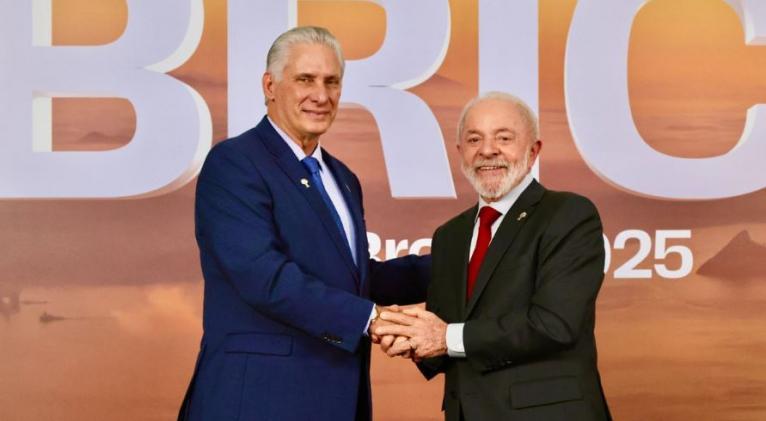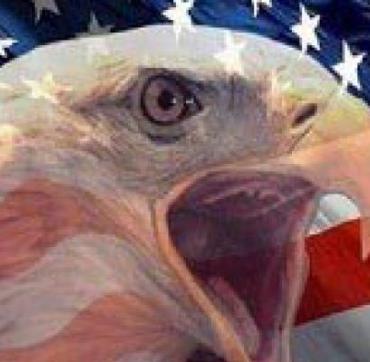Lula Greets Díaz-Canel, Highlighting Cuba’s Role in the Caribbean and BRICS
especiales

Brazilian President Luiz Inácio Lula da Silva, host of the 17th BRICS Summit, warmly greeted his Cuban counterpart Miguel Díaz-Canel today with an embrace and a firm handshake that spoke volumes beyond words.
The encounter took place during the afternoon session of the forum’s opening day, which is being held for the first time in South America with the participation not only of the bloc’s five founding members but also of a growing constellation of invited nations expanding the reach of the Global South.
Among them is Cuba, widely recognized for its enduring resilience under what is considered the longest economic blockade in modern history.
For many attending the summit at Rio de Janeiro’s Museum of Modern Art, Lula’s greeting was more than a simple gesture. It was seen as a political affirmation, evoking the years when Lula shared platforms with the historic leader of the Cuban Revolution, Fidel Castro, whether in Porto Alegre or at meetings of the São Paulo Forum.
As the founder of Brazil’s ruling Workers’ Party, Lula has long viewed Cuba not only as a symbol of steadfastness but also as an essential voice for the Caribbean and Latin America in multilateral arenas. Without uttering a word, Lula’s greeting suggested that Cuba, a nation subjected to an unjust blockade for more than six decades, stands firm and speaks on behalf of many.
Analysts regard Cuba’s invitation to the summit as an act of diplomatic sovereignty, as well as a reaffirmation of regional integration.
Despite internal challenges, Havana remains the most politically influential force in the insular Caribbean, with a legacy of international solidarity that continues to earn respect across Africa, Asia, and Latin America.
As the major powers within BRICS — China, India, Russia, Brazil, and South Africa — deliberate on alternative currencies, energy transitions, and new global power balances, Cuba’s presence is a reminder that the geopolitics of the Global South also carries Caribbean and island perspectives.
In alignment with Lula’s gesture, the final BRICS declaration condemned the use of unilateral trade sanctions and tariff increases as tools of political pressure.
However, the document did not directly name the United States or the administration of former President Donald Trump.
According to the declaration, the imposition of unilateral coercive measures violates international law.
BRICS rejected such actions, including secondary and extraterritorial sanctions, noting that these measures “have severe negative impacts on human rights, including the rights to development, health, and food security for the general population of the affected states.”














Add new comment